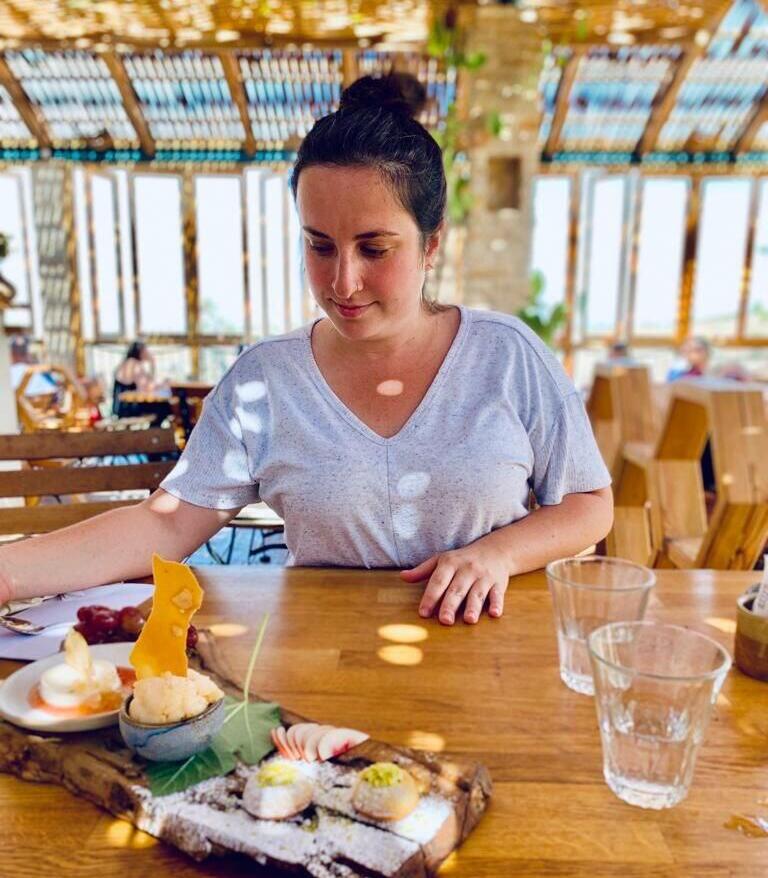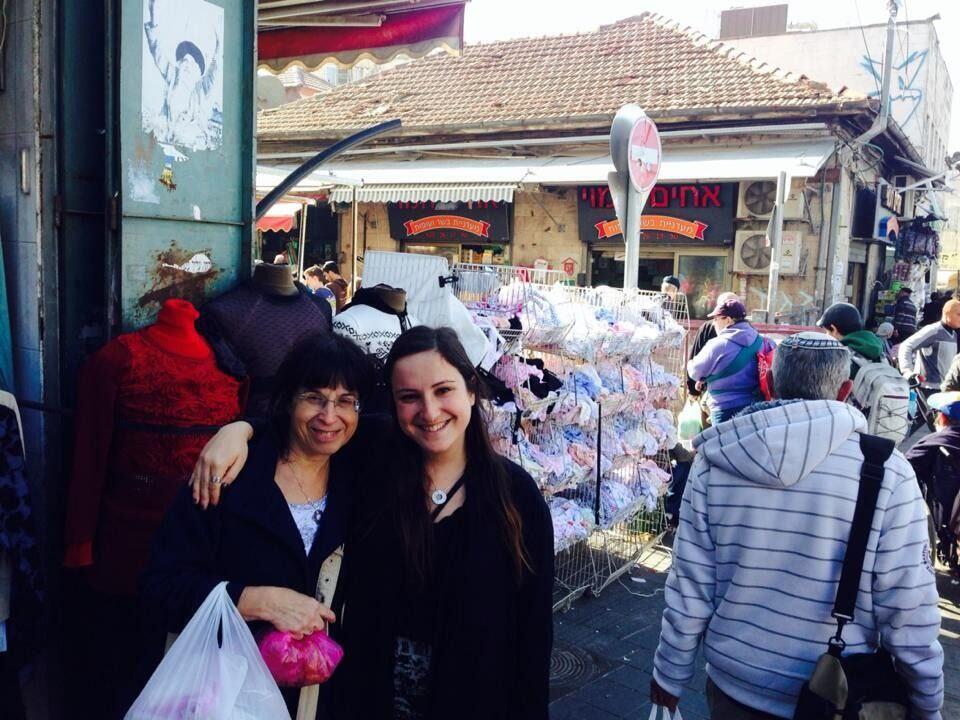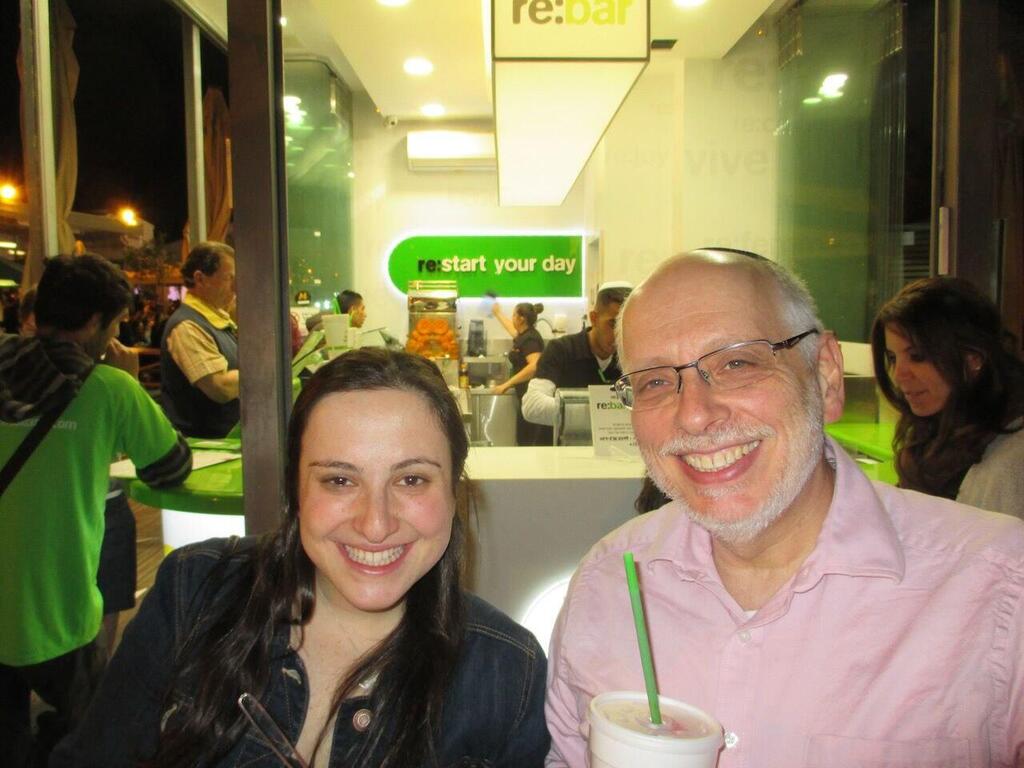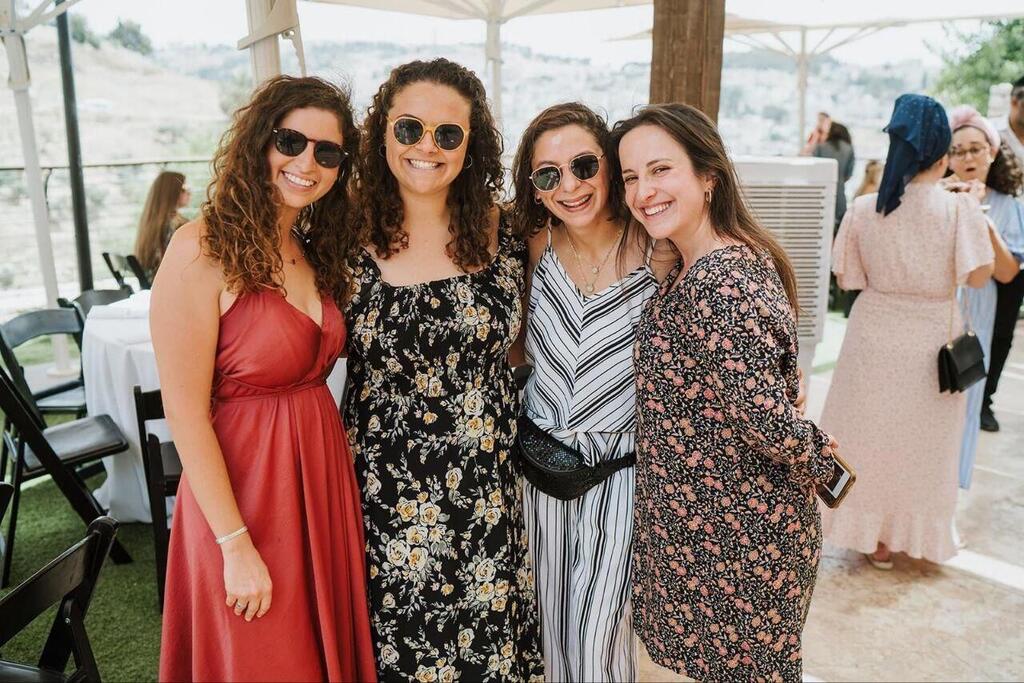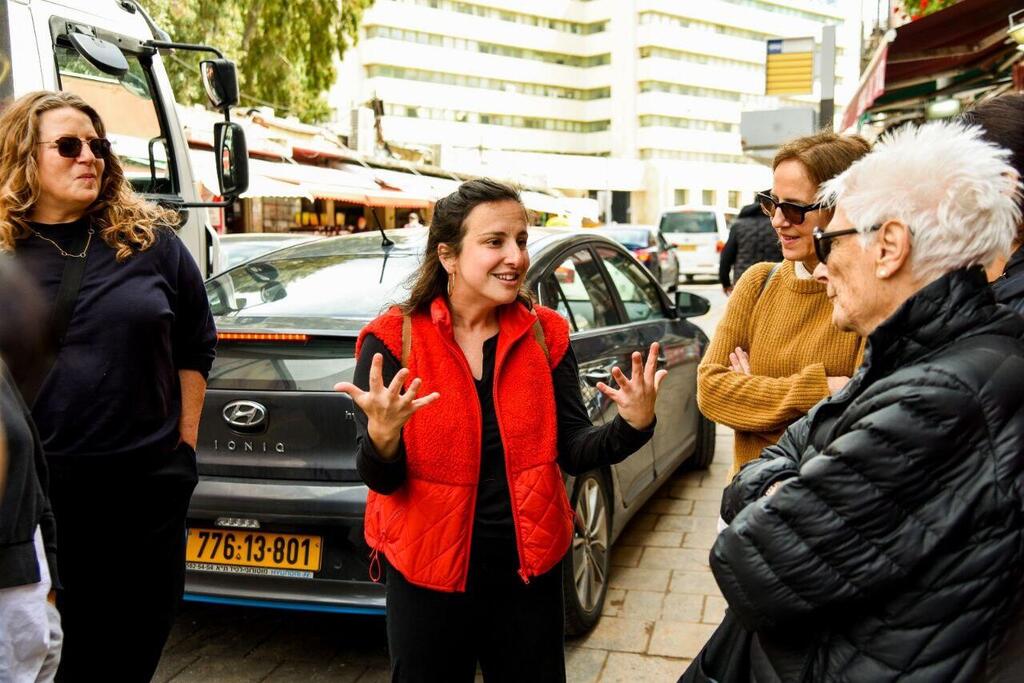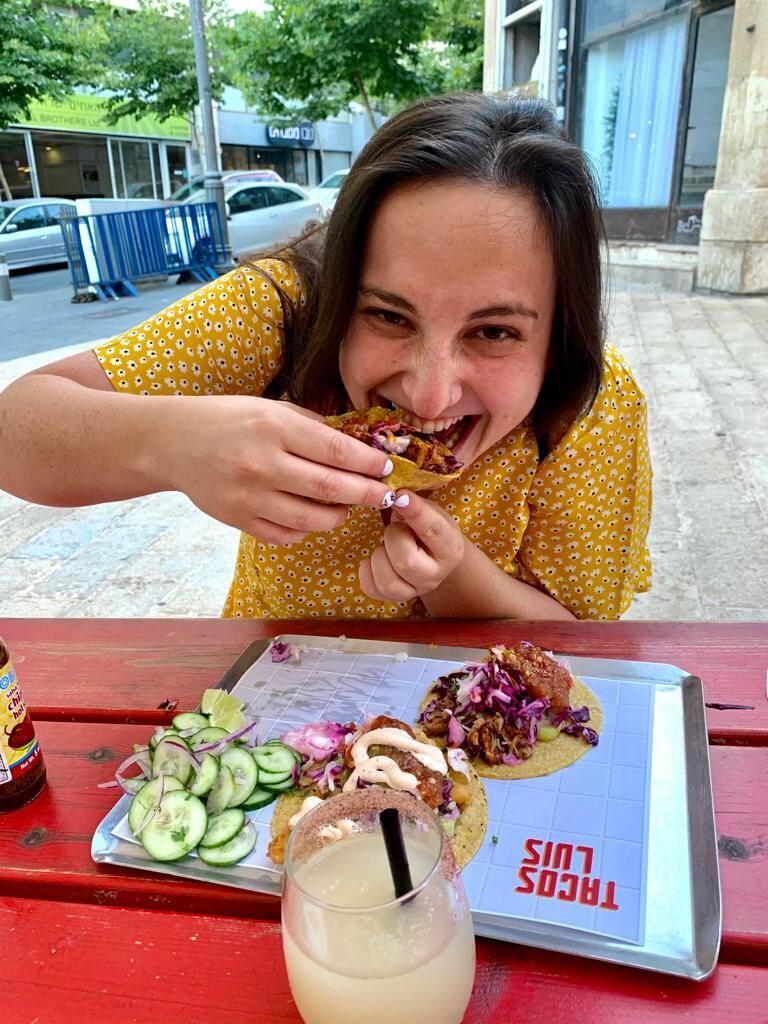Last week, Leora Mietkiewicz, 29, was in a coffee shop in Tel Aviv, where she struggled to decide whether she should order dessert. After all, it's a few more unnecessary calories. “The young, smart waiter looked at me and said ‘We have to enjoy! We need to live life’ and so I ordered myself an ice cream.”

This will be the fifth time Leora spends the High Holidays in Israel as a proud citizen. In September 2019, half a year before COVID broke out, Leora made Aliyah from Ontario, Canada with the help of Nefesh B’Nefesh, which works in cooperation with the Aliyah and Integration Ministry, the Jewish Agency for Israel, Keren Kayemeth LeIsrael and Jewish National Fund-USA. When making the move, she left her parents and extended family back in Canada.
“As an only child, I know that my mom and dad's hearts are with me here in Israel. My parents and I are very close, we speak over FaceTime often and they follow my Instagram account daily to see what my life is like in Israel.”
And what is your life like here?
“A while ago, I traveled on the light rail in Jerusalem. A woman asked if any of the other passengers had water for her. Another woman who was sitting nearby was glowing as she excitedly responded, ‘I don't have water, but I have love.’ I loved her response so much, and I understood why she was surrounded by light.”
Amazing opportunities for all who are open to them
And do you have an explanation for that?
“It's the heat, rawness, authenticity, simplicity, crowds, reality, humor, frustration, excitement, fear and genuine appreciation. It's been four years since my Aliyah flight, and I have so much to celebrate - I've achieved and realized so many goals and dreams. Every day, I am grateful for the path that I have chosen.”
“I have Israeli-born friends that tell me that I’m ‘really Israeli’, and when I hear them, I am so delighted. I obviously have an accent, but you can see my happiness. I continue absorbing it from the people around me. Always.”
All thanks to an Israeli TV show
Mietkiewicz visited Israel for the first time at 15 as part of a six-week seminar with Ramah Israel. But her love for the land began as a child. “Arik Einstein's music was always playing in the background at home growing up, and I went to Israeli dancing classes often,” she shares with a smile. “My mom tried to make Aliyah in the 70s but came back to Canada a few years later. My dad also experienced kibbutz life in his 20s. I enjoyed Jewish education both at school and at summer camp where Israel was a core part of the programming.”
The real inspiration for “this special place” - as she calls it, came in 2014, after her mom introduced her to Srugim, a popular Israeli TV show. “She brought home a DVD of this series that was like the Israeli version of Friends, but with characters living their lives in the dating world of the Katamon neighborhood. After one episode, I was hooked. I loved the struggle, the reality, the music and the scenic views of Jerusalem.”
A few days after finishing the first season, Leora notified her mother that they would be traveling to Israel. Without any permission from her school, they already had tickets in hand. “Our week in Israel was so amazing, that on the last day, I looked at her, cried and said, ‘I can't leave’. A few months later I went back, this time with my dad. Again, right before getting on the plane to come home, I had the same feeling, and I just couldn't leave. And just like that, each time a trip to Israel ended, I had the next trip already planned - and I always had a list of places that I planned to eat at. Food is the ultimate way to connect. It connects us to our senses and to people from the past, the present, and the future.”
And how is the food in Israel?
“Inspirational. And if we’re talking about inspiration, there's no place more inspiring to me than Jerusalem’s Machane Yehuda Market. I'm enchanted by it because every hour of the day it looks a bit different. It starts in the morning when bakeries display hot loaves of bread, trucks unload their fruit and vegetables, and it’s time to enjoy a good cappuccino in a small coffee shop.
"Around lunchtime, the market starts to fill up. Then the evening comes, the stores and the stands close and the bars and pubs spread out their tables and chairs. It’s time to enjoy being together. The options at the market are endless” she says, her eyes filled with passion. “I love Israeli food. I love adding a little bit of salt and olive oil to my tomato. It's enough.”
Leora turned her love for food and the market into a profession. “I lead culinary tours for tourists and introduce them to local dishes, the special people and the Israeli story. It is an honor to show tourists how tahini is made and to be with them when they taste it for the first time.”
How about a relationship?
“That will come too,” she said with a wide, shy smile. “I haven't found my soulmate yet. I think he needs to be someone who understands where I came from - and who I am now. Will he be an Israeli or Oleh, or an Israeli with Anglo parents, I don't know. But I know that when I find the right person, he will be my other half.”
From your experience, what would you recommend to other Olim?
“When I started dealing with the challenges of Aliyah, I assumed that the term 'struggle' was negative. And here, I learned that there are challenges, but in the best way possible. When things get tough, they test me and help me grow. Although it's not always so pleasant, that's how we build our character. And besides that, these challenges are how I learn to appreciate the bigger picture and the small things that I experience.”
“I tell Olim that there are a lot of people in this country that have done exactly what you are doing, so ask for help and be open.’ I still haven't found a community quite as accepting, warm, understanding and caring as the Olim communities of Jerusalem and Tel Aviv. Making Aliyah is intense, and it’s encouraging to know that other people are experiencing exactly what I’m going through.”
“And to Israelis, I say: when you're talking to a new Oleh, slow down. It's hard for us to understand a conversation with an Israeli that speaks so fast,” she adds jokingly.
What do you wish for the Israeli people for the new year?
“Rosh Hashanah is a time of internal reflection. I hope that we take a moment to ask ourselves 'what can I do every day to be a little bit better?' And 'what can I do to understand the person next to me, even if we see things differently?' Shana tova u’mtuka.”



